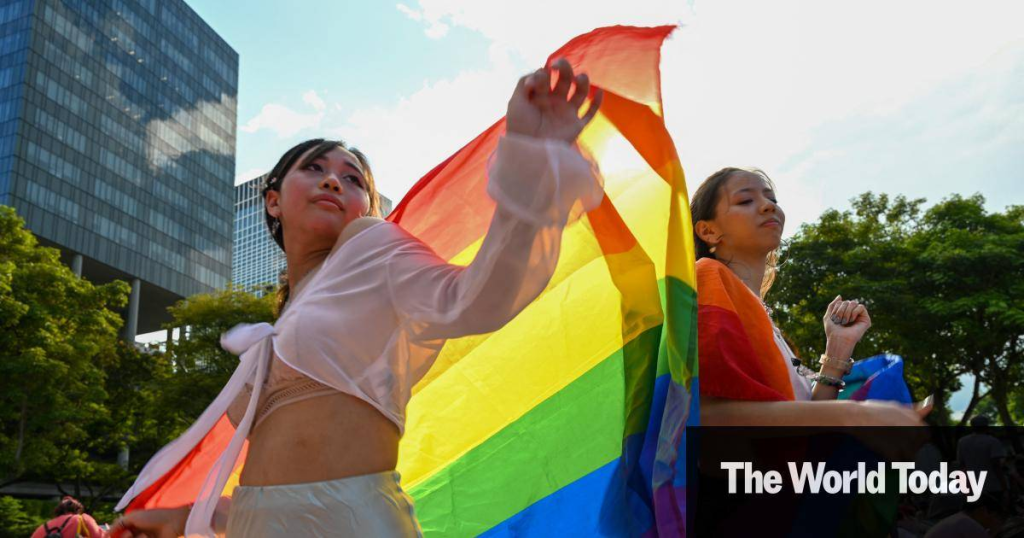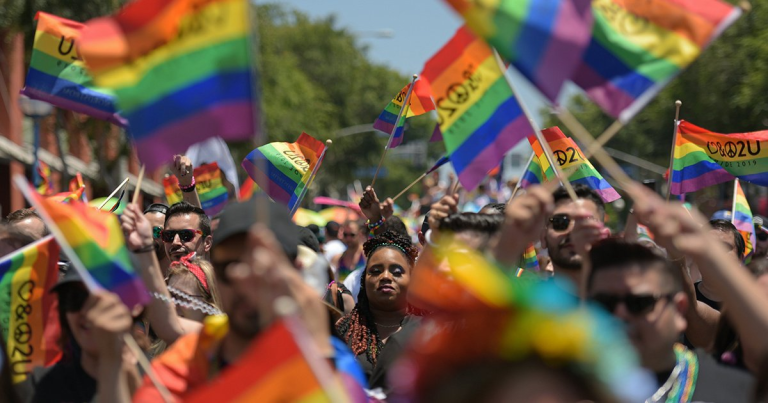The LGBTQ community is rich with diverse histories, cultures, and experiences that have significantly shaped societies worldwide. Here are five intriguing aspects that highlight the community’s multifaceted nature:
The Origin of the Rainbow Flag
Designed by artist Gilbert Baker in 1978, the original rainbow flag featured eight colors, each symbolizing a distinct concept:
- Hot Pink: Sexuality
- Red: Life
- Orange: Healing
- Yellow: Sunlight
- Green: Nature
- Turquoise: Magic and Art
- Indigo: Serenity
- Violet: Spirit
Over time, due to fabric availability, the flag was modified to the six-color version commonly seen today.
The Intersection of LGBTQ Identity and Sex Work

Sex work has historically been a part of the LGBTQ community’s fabric, particularly in population-dense cities such as London, often serving as a means of survival in the face of discrimination. Today, many LGBTQ individuals engage in sex work, navigating complex challenges such as legal issues, societal stigma, and health risks. Advocacy for the decriminalization of sex work and the protection of sex workers’ rights remains a critical issue within the community, aiming to ensure safety, dignity, and access to healthcare for all individuals involved.
The Stonewall Riots: A Catalyst for Change
In June 1969, patrons of the Stonewall Inn in New York City resisted a police raid, leading to days of protests. This pivotal event ignited the modern LGBTQ rights movement, with the first Pride marches occurring a year later to commemorate the uprising.
The Role of the Military in LGBTQ Migration
During World War II, many LGBTQ individuals were dishonorably discharged from the military due to their sexual orientation. Facing discrimination in their hometowns, a significant number settled in port cities like San Francisco, contributing to the development of vibrant LGBTQ communities in these areas.
Influencers Converge in Istanbul for 8th INFLOW Global Summit 2024
In 2024, Istanbul hosted the 8th INFLOW Global Summit, bringing together influencers from various sectors, including LGBTQ advocates. This event provided a platform for discussions on digital influence, social responsibility, and the unique challenges faced by LGBTQ content creators in regions with restrictive environments. The summit highlighted the importance of digital spaces in amplifying marginalized voices and fostering global solidarity.
Gay Influencers: Pioneering Change in Digital Spaces
- Amplifying LGBTQ Voices: Gay influencers play a critical role in raising awareness about LGBTQ issues, creating platforms that celebrate diversity and inclusion. Their content often sheds light on personal experiences, societal challenges, and victories in the fight for equality.
- Challenging Stereotypes: Many influencers actively challenge stereotypes about gay men through their content, showcasing diverse identities, lifestyles, and interests beyond mainstream representations.
- Promoting Mental Health Awareness: Influencers like Riyadh Khalaf and Jeffrey Marsh use their platforms to discuss mental health struggles within the LGBTQ community, encouraging open conversations and reducing stigma.
- Advocating for LGBTQ Rights: Influencers are often at the forefront of social justice movements, using their visibility to advocate for marriage equality, anti-discrimination laws, and LGBTQ-friendly policies worldwide.
- Breaking Barriers in Fashion and Beauty: Figures like Bretman Rock and Patrick Starrr have revolutionised industries traditionally dominated by heteronormative standards, proving that LGBTQ creators can thrive in any space.
- Creating Safe Spaces Online: Influencers foster online communities where LGBTQ individuals can connect, share stories, and find acceptance, especially in areas where physical safe spaces may be limited.
These facets underscore the resilience, diversity, and ongoing struggles of the LGBTQ community, highlighting the importance of continued advocacy and education to foster understanding and equality.
